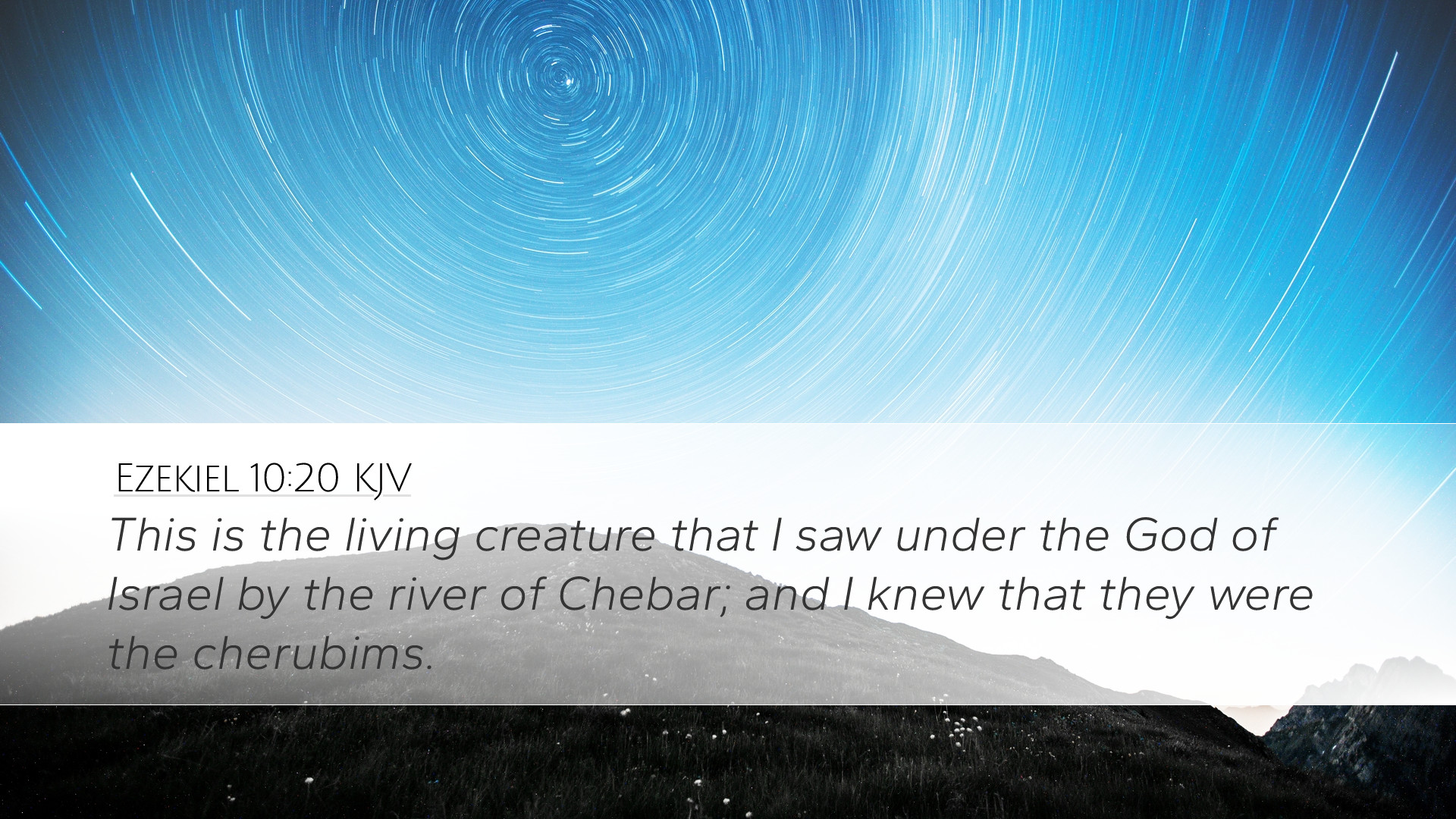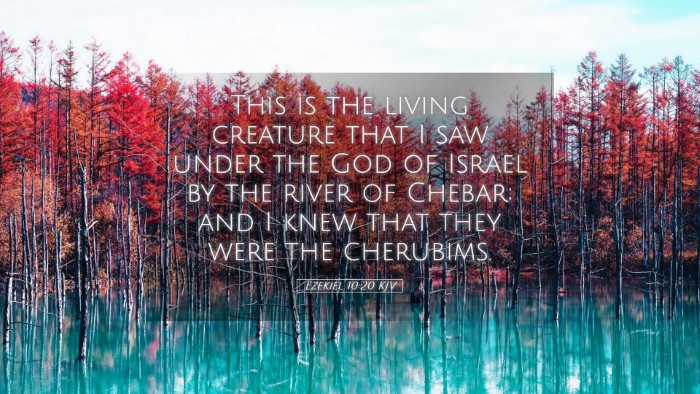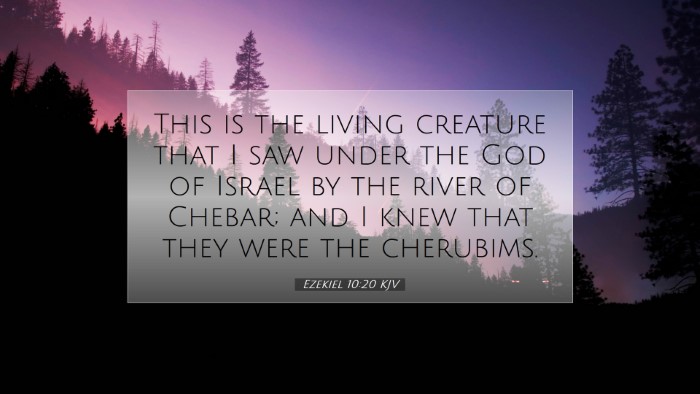Bible Commentary on Ezekiel 10:20
The verse Ezekiel 10:20 reads: "These are the living creatures that I saw under the God of Israel by the river Chebar; and I knew that they were cherubims." This verse forms a crucial part of the larger vision experienced by the prophet Ezekiel and serves to deepen our understanding of divine presence and angelic beings within the context of the Israelite faith.
Contextual Background
Ezekiel, a prophet and priest, was exiled to Babylon during the fall of Jerusalem. His prophetic ministry was marked by vivid imagery and visions, including the vision of the chariot (Ezekiel 1) and the glory of the Lord departing the temple (Ezekiel 10). The cherubim, as depicted in this passage, symbolize the transcendent nature of God and His involvement in the world.
Insights from Public Domain Commentaries
Matthew Henry's Commentary
- Nature of the Creatures: Henry emphasizes that the cherubim are not merely decorative but serve a theological purpose. They signify God's sovereignty and majesty, functioning as guardians of His holiness. Their appearance under the God of Israel highlights their role as intermediaries between the divine and humanity.
- Symbolism of the River Chebar: The mention of the river Chebar is significant as it represents a place of divine revelation amidst exile. Henry notes that even in foreign lands, God reveals His presence and purpose, demonstrating His omnipotence.
Albert Barnes' Notes on the Bible
- Identification of the Cherubim: Barnes explicates the identification of the creatures in verse 20 as cherubim. He points out that cherubim denote a specific rank of angels associated with the worship of God and the protection of the divine throne.
- Divine Revelation: He further highlights that this vision serves as a reassurance to Ezekiel and the exiled Jews of God's continued presence and plans, even amidst their distress. It is a declaration that the covenant with Israel remains in effect.
Adam Clarke's Commentary
- The Significance of Knowledge in the Vision: Clarke notes Ezekiel's acknowledgment of these creatures as cherubim indicates a deep understanding of the nature of God’s revelation. His careful observation illustrates the clarity and certainty of divine communication.
- Encouragement for Exiled Israel: Clarke interprets the entire vision, including verse 20, as a source of hope for the Israelites in captivity. The assurance of God's presence implies that they have not been forsaken, and that restoration is possible.
Theological Reflections
The imagery in Ezekiel 10:20 invites theologians and scholars to reflect deeply on the nature of God and divine intermediaries. The cherubim serve as a profound reminder of God's transcendence and immanence—He is both far above creation yet intricately involved in human affairs.
Divine Sovereignty and Holiness
The presence of cherubim guarding the divine seat underscores the holiness of God. Their role is to protect and proclaim the sacredness of His presence. This theme resonates throughout the Scripture, where the call to holiness is recurrent. Pastors may use this insight to exhort congregations to honor God's holiness in their lives.
God’s Communication with Humanity
Ezekiel's recognition of the creatures reflects the biblical principle that God communicates with His people. The theological implication is that God chooses to reveal Himself to humanity, especially in times of distress. This serves as a comforting reminder for both students and scholars of the active role God plays in guiding and sustaining His people.
Conclusion
In summary, Ezekiel 10:20 serves as a powerful testimony of the divine and angelic interplay, illustrating that God remains sovereign even in the midst of exile and despair. The insights drawn from public domain commentaries like those from Matthew Henry, Albert Barnes, and Adam Clarke converge to depict a rich tapestry of God's character and roles within biblical narrative.
This understanding fosters a deeper relationship with the divine, encouraging believers to trust in God's presence and sovereignty as they navigate life's challenges.


